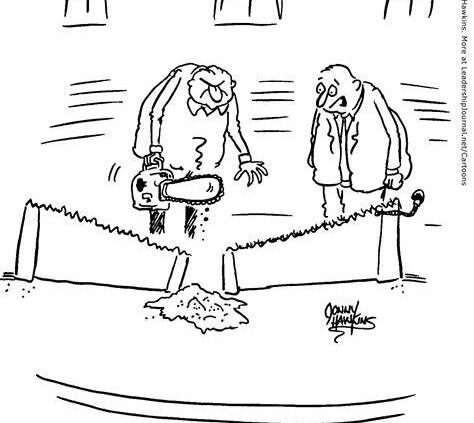The Best Sermon Critics
The Best Sermon Critics
We are considering how to avoid the great sermon sucking black hole. In other words, how do we make our sermons memorable enough that they aren’t forgotten by Monday Morning. In this post we are going to ask the question: who are the best sermon critics for your sermons?
Sermon Contests
 When I was in seminary, a sermon contest was announced. We students could submit a manuscript for consideration by a panel of judges, and the winner would receive a cash award, as well as a nice piece of paper announcing that we had accomplished this great feat of winning a sermon contest. I didn’t enter the contest, but the idea intrigued me recently when someone asked me to give an evaluation of the preaching of the pastor in her church. You see, I am considered something of an expert since I teach preaching for Christian Leaders Institute. I declined to give an evaluation, largely because the questioner really wanted to get affirmation of her negative evaluation of said preaching. But that brought up in my mind who are the best sermon critics for us preachers?
When I was in seminary, a sermon contest was announced. We students could submit a manuscript for consideration by a panel of judges, and the winner would receive a cash award, as well as a nice piece of paper announcing that we had accomplished this great feat of winning a sermon contest. I didn’t enter the contest, but the idea intrigued me recently when someone asked me to give an evaluation of the preaching of the pastor in her church. You see, I am considered something of an expert since I teach preaching for Christian Leaders Institute. I declined to give an evaluation, largely because the questioner really wanted to get affirmation of her negative evaluation of said preaching. But that brought up in my mind who are the best sermon critics for us preachers?
The answer, I think, is the people in the pew, the ones who listen to and apply the message. They tell us whether or not the message is effective.
The Problem of the Sermon Critic
When I am asked to evaluate a message there are several criteria that I can consider. First, I can consider the presentation: how the person uses their voice and body in giving the message. Second, I can look at the passion that the person brings to the message. Thirdly, I can focus on the organization of the message; is it true to the Scripture and does the flow of the message make sense?
All those are good things, right? But here’s the problem: the only way to really determine the quality of a sermon is to look at the results. How do the listeners respond? That’s why they are the best sermon critics for any message.
The Evaluation of the Best Sermon Critics
So, how do people evaluate messages in general? In one gauge, our sermons are not really accomplishing the goal. What is the  goal? I would argue that the goal of a sermon is not just to be remembered, but to change lives. In that regard, some statistics indicate that we are not doing a very good job in delivering the life changing message about Jesus from the inspired Word of God.
goal? I would argue that the goal of a sermon is not just to be remembered, but to change lives. In that regard, some statistics indicate that we are not doing a very good job in delivering the life changing message about Jesus from the inspired Word of God.
For instance, a survey done a while ago showed that regular church attenders are more likely to be divorced (25%) than those who are not born again (24%). What??? How do we explain that? I don’t mean to belittle divorced people here–please hear that. I believe we are all sinners. None of us has a freedom to look down on any other person or their sin–we’ve got enough of our own. But…how, in such a basic area of life as the family, how could we look worse than the rest of the population?
The bottom line is that a sermon must go beyond correct doctrine. Rather, the impact of the message is where we should be focusing our attention and efforts. That’s the message from a consideration of the best sermon critics and a reminder of what we are about when we are preaching.
So How Do Your Critics Evaluate Your Messages?
That’s the question. In his book on The Sermon Sucking Black Hole, David Mains quotes one nationally known pastor this way:
“I have been preaching in my church for over 20 years, and my people are no different now than when I started.” (p. 15)
Ouch!
In the next post we’ll look at some ways to prepare your people to be the best sermon critics by giving some questions for them to ask of you and your sermons.



